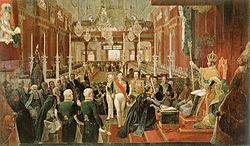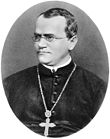| Millennium: | 2nd millennium |
|---|---|
| Centuries: | |
| Decades: | |
| Years: | |


| 1822 by topic |
|---|
| Humanities |
| By country |
| Other topics |
| Lists of leaders |
| Birth and death categories |
| Establishments and disestablishments categories |
| Works category |
Wikimedia Commons has media related to 1822 .

1822 (MDCCCXXII) was a common year starting on Tuesday of the Gregorian calendar and a common year starting on Sunday of the Julian calendar, the 1822nd year of the Common Era (CE) and Anno Domini (AD) designations, the 822nd year of the 2nd millennium, the 22nd year of the 19th century, and the 3rd year of the 1820s decade. As of the start of 1822, the Gregorian calendar was 12days ahead of the Julian calendar, which remained in localized use until 1923.







